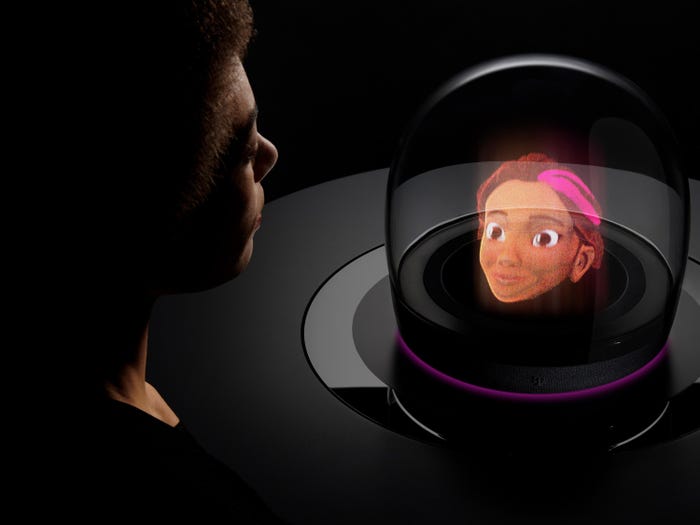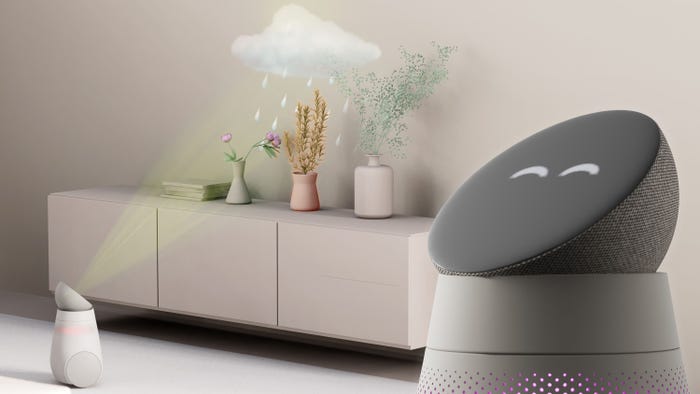Smart Home Hologram Smart Hub, Roaming Robot at Mobile World Congress
Designed by Deutsche Telekom and Layer Design the products leverage emerging technologies and showcases the potential of AI for communication tech

Industrial design company Layer and Deutsche Telekom have designed a series of smart home assistants, first unveiled in February at Mobile World Congress in Barcelona.
The Concept T design suite includes a holographic hub and a roving personal robot and leverages emerging technologies including AI, computer vision and Wi-Fi sensing, in what the companies say demonstrates the potential future of communication.
"Concept T is researching how hologram telephony, among other things, could become a reality,” said Claudia Nemat, Deutsche Telekom’s member of the board of management for technology and innovation. “Not on the shelves tomorrow, but in our heads and laboratories today,
“The study takes our human-centered understanding of technology a step further: I operate Concept T with a natural voice and gestures. All this will also be made possible by clever AI."
The first design is an AI-powered virtual assistant that the Deutsche Telekom team termed the “communicative control center of tomorrow.”
Dubbed Emma, the assistant appears as a hologram projected inside a glass ball, and acts as a smart home hub. The holographic assistant can assist customers with daily tasks, control appliances and conditions in the home, and even facilitate holographic video calls, using integrated smart cameras to scan a user’s face and create their own digital, holographic avatar.

Virtual Assistant, Emma. Credit: T-Mobile
The companies also showcased Concept Buddy, a small-scale roaming robot that they described as a “friendly butler.”
The wheeled design is also outfitted with smart home features, able to monitor room conditions such as temperature and air quality and make adjustments as necessary. It also comes with a built-in projector so it can project messages onto the wall for users, such as rain clouds above plants that need watering.

Concept Buddy. Credit: T-Mobile
The companies have noted that the designs are not anticipated to reach commercialization any time soon, but that they provide an example of what AI could achieve when deployed in a smart home setting.
“The variants of Concept T represent a possible future route,” according to a company statement. . “They are not intended as products that will be in the store tomorrow…However, it is conceivable that individual functions could be implemented in different products.”
About the Author
You May Also Like








